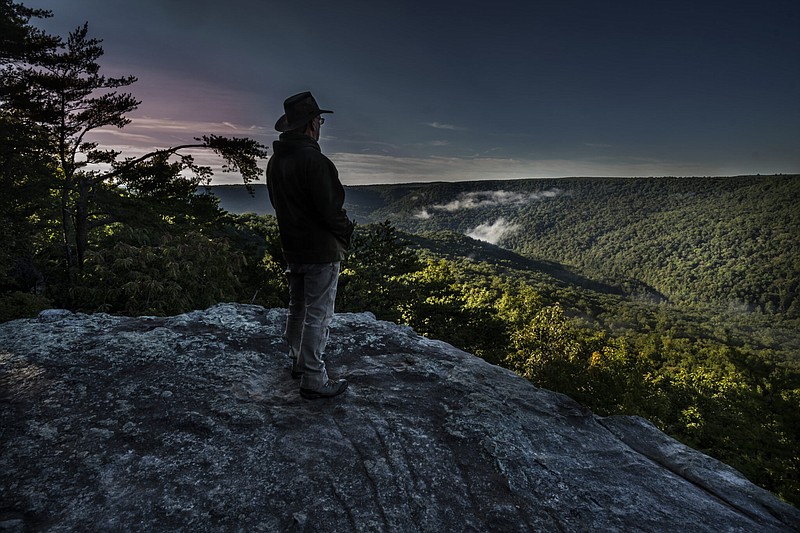Elected officials who occupy positions on hunting-oriented caucuses are weighing in on a controversial plan to clear hardwood trees in order to create a grassy habitat for quail - a game bird - in a popular wilderness area in White County.
U.S. Congressman Jim Cooper, D-Nashville, and state Rep. Bob Freeman, D-Nashville - members, respectively, of the Congressional Sportsmen's Caucus and Tennessee Sportsmen's Caucus - last week made clear they are against clear-cutting trees in the Bridgestone Firestone Centennial Wilderness Area, a 16,000-acre gift to the state from the Nashville-based tire giant.
State Sen. Mike Bell, R-Riceville, co-chair of the Tennessee Sportsmen's Caucus, said he thought clearing forest for quail habitat was a good idea, but he would leave it to state wildlife officials and elected representatives from the area to decide its fate.
"When you look at the hundreds of thousands of acres we own across the state of Tennessee, we're talking about taking a very small fraction of that and creating a type of ecosystem that is very beneficial to wildlife and that we don't have anymore," Bell said.
Late this past summer, a leaked map from the Tennessee Wildlife Resources Agency showed 2,000 acres in the wilderness area carved out for clearing timber as part of a long-term strategic plan to restore bobwhite quail to Tennessee. The bird's population has plummeted by 80% in recent decades.
But the property in question is a popular destination for deer and turkey hunters as well as hikers and kayakers and is part of the landscape that White County residents have grown up with for generations.
The leaked map prompted outrage. In response, the TWRA held a public meeting in October, during which it revealed a plan to cut 240 acres in an initial phase of timber removal. The leaked map, officials told attendees, was inadvertently released and had not been fully vetted. TWRA officials did not say how many acres ultimately would be cleared, but a strategic plan to restore bobwhite quail in different parts of the state calls for 1,500 contiguous tracts to be successful.
(READ MORE: Environmentalists concerned about logging impact on Tennessee state forests' health)
The land was deeded to the state with certain conditions set by Bridgestone. The Tennessee Wildlife Federation is currently reviewing the covenants attached to the deed to see if TWRA plans are in line with the original intentions of the gift. That review remains underway, a Bridgestone spokesperson said.
The Congressional Sportsmen Foundation - which is unaffiliated with either Tennessee's or the Congressional sportsmen caucuses - also waded into the controversy, providing a surprise endorsement for the plan, which has not yet been legally vetted by the federation.
Freeman said Friday one of the reasons he opposed the plan is because elsewhere on the Bridgestone property are hundreds of acres of fast-growing pine trees that could be used instead of hardwoods for quail habitat.
"I'm not [in favor], and the biggest issue I have is we already have a great wildlife habitat right there," he said. "It appears there's an equally acceptable site just down the road with less old-growth hardwoods there, some pines and scrub trees. If it's all the same, we ought to just do it down the road. But I've had calls from my constituents, people in that community, and overwhelmingly they are not in favor of it."
But Bell and TWRA officials have stressed that deforestation has a far wider benefit than restoring only bobwhite quail to Tennessee.
"It's not just for quail habitat," Bell said. "They're looking at restoring a type of landscape that we no longer have in Tennessee, and that's called an oak savanna. That's beneficial not just to quail, but turkey, deer, songbirds and everything. I actually think it's a good idea."
Read more at TennesseeLookout.com.
